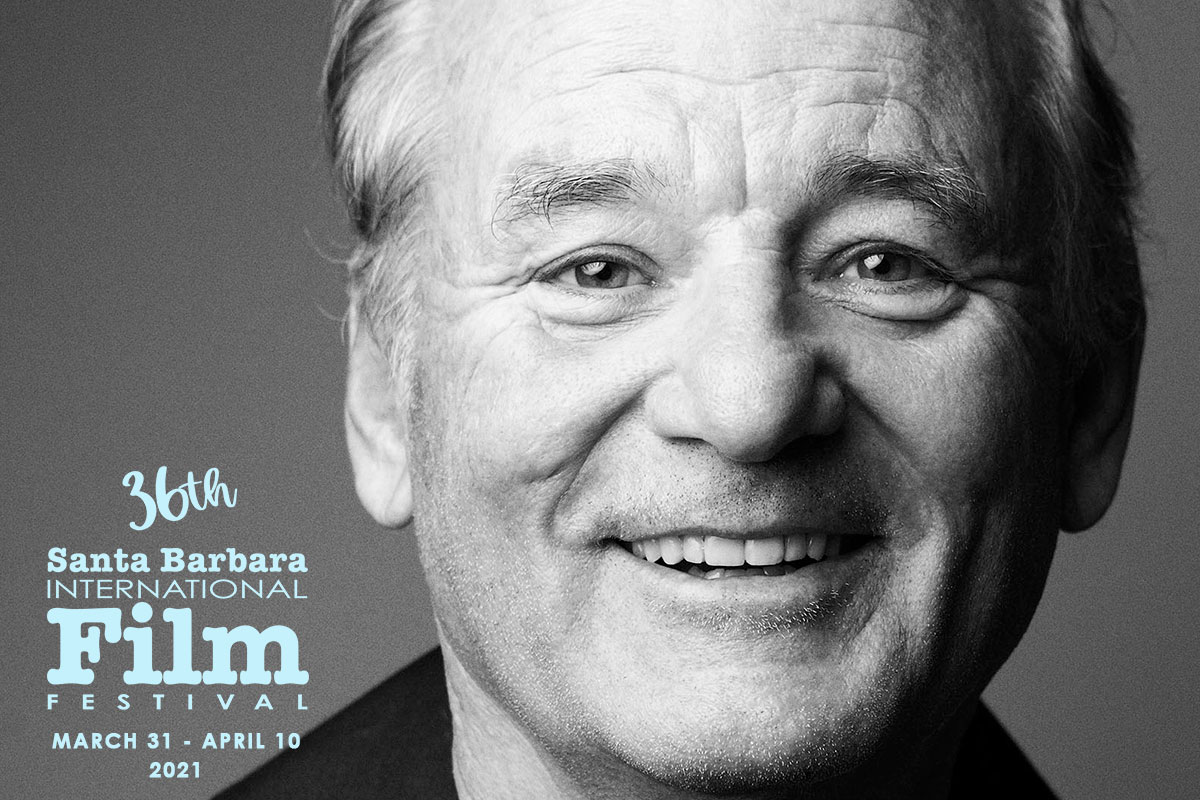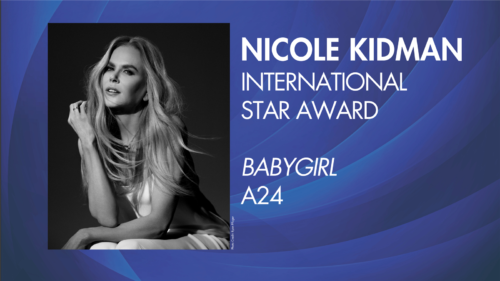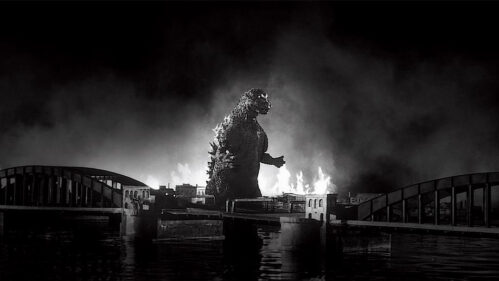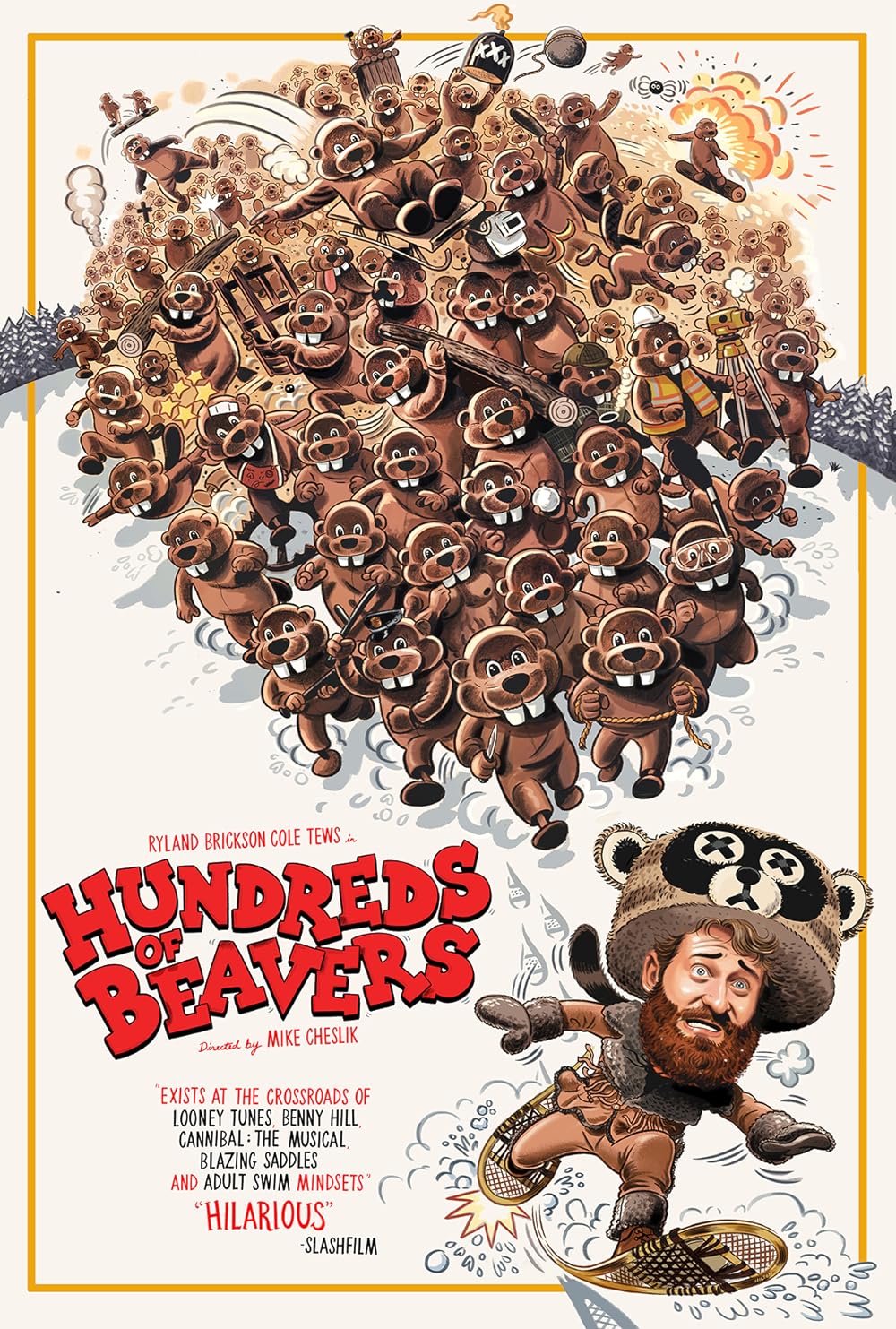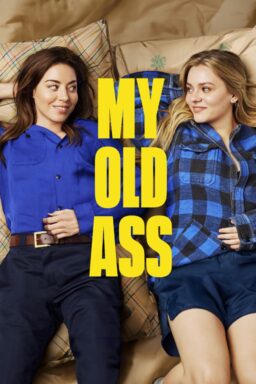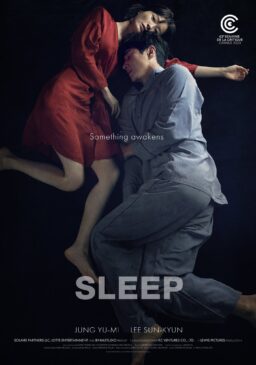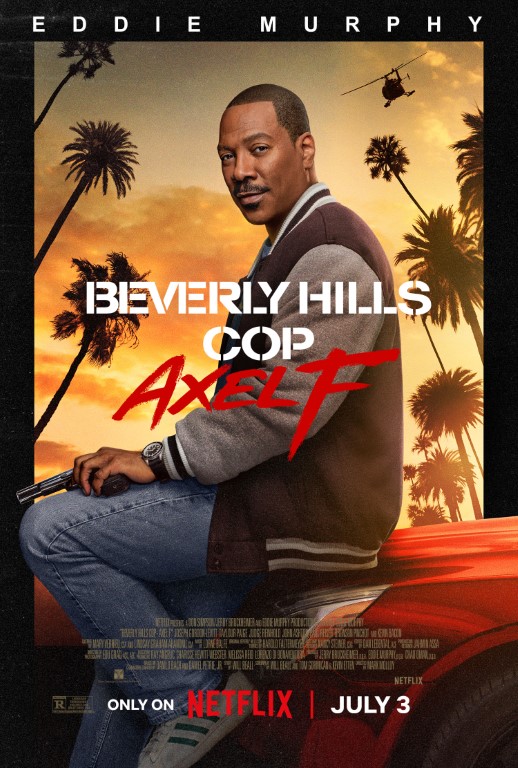Whether praising Miley Cyrus' bona-fides and Andie MacDowell's hair or extoling the virtues of the #16 taco special at Santa Barbara taqueria La Super Rica, Bill Murray was at his Bill Murray-est in accepting the Santa Barbara International Film Festival's Maltin Modern Master Award, the festival's highest honor. Murray was arguably the festival's biggest "get" among its signature A-list industry panels and actor tributes, among them Sacha Baron Cohen, Amanda Seyfried, Vanessa Kirby, Riz Ahmed, and Carey Mulligan, and Delroy Lindo.
The 90-min. Murray interview, conducted virtually, by film historian Leonard Maltin, the award's namesake, found the recipient in a gracious mood and in good humor. "I was taken by surprise," Murray joked, "thinking that you had passed away. I had worked up so many nice things to say about you. But I was very happy to hear you were still alive."
Maltin took Murray through his "greatest hits" (I wish there had been more on "Quick Change," an underseen gem), including "Ghostbusters" in all its incarnations. Murray was magnanimous toward the critically-maligned 1989 sequel ("They got us in the sequel under false pretenses ... but just to be together was great") and Paul Feig's 2016 reboot starring Kristen Wiig, Melissa McCarthy, Kate McKinnon and Leslie Jones. "Those girls are so funny," he praised. "I sat in amazement, watching them. You want a trip around the world, do a scene with those four girls sometime."
"Groundhog Day," perhaps Murray's legacy film, was a fraught production and he took the opportunity to make amends-ish with costar Andie MacDowell. "I've thought about it many times, that I owe her a real apology because she did drive me crazy," he said. "I'm not really method, but I must have really resented the fact that we were 17 weeks into the movie and she still didn't like me. But I'd like to put on the record that her performance in the film is really, really, really good. It's really great. That was a hard movie to make. It was just as hard for her, and she had that hair to deal with."
He reserved special praise for his Second City colleague and "Groundhog Day" director Harold Ramis, "Lost in Translation" director Sofia Coppola, and Wes Anderson, with whom Murray agreed to work after just reading the "Rushmore" script (he confessed he still hasn't seen Anderson's first film, "Bottle Rocket").
He also shared a bit of the Tao of Murray when he mentioned someone had told him that in a certain film, he had just been playing himself. Murray's very Murray response: "You know, it's harder than you think to be yourself."
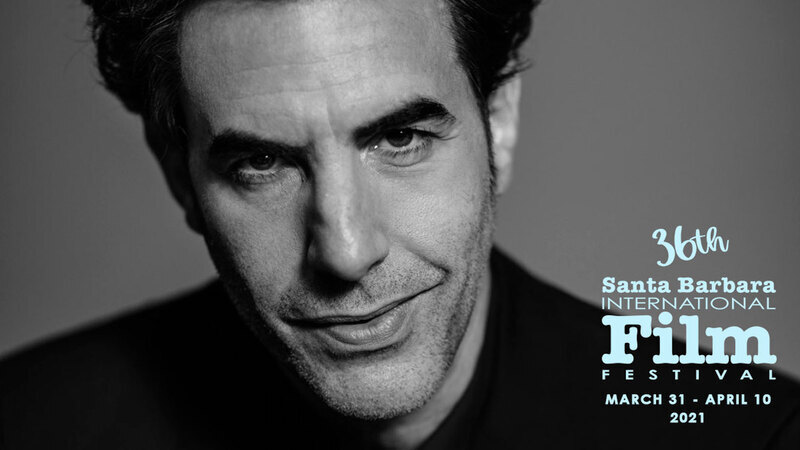
The Motion Picture Academy is notorious for not honoring comedy (only four in its more than 90-year history have been honored as Best Picture; five, if you count "Shakespeare in Love"). So, of course, Sacha Baron Cohen was nominated this year not for his masterful comedic performance in "Borat Subsequent Moviefilm," but for his dramatic turn as Abbie Hoffman in Aaron Sorkin's "The Trial of the Chicago 7."
The SBIFF honored Cohen with its Outstanding Performer of the Year award and for almost two hours, he was funny, thoughtful, and impassioned about his process, and the method behind the madness. He also discussed how Donald Trump's rise to the presidency compelled him to make his undercover Showtime series, "Who is America?" and subsequently make another film as Borat almost 15 years after the original.
"I think it was on the day of the Muslim ban where I just felt I couldn't stand back and be a bystander," he said. "As much as I didn't want to, I would have to go undercover again, not thinking it would make any difference, but I was angry that [a] politician was using racist policies. That angered me to my core."
Cohen was emboldened when some of the participants in "Who is America?" were not re-elected after they were caught on camera behaving politically incorrect (Georgia lawmaker Jason Spencer resigned after being pranked by Cohen into using the n-word). He also said he wanted to make a new Borat film that was "entertaining and emotionally engaging, but was a reminder of everything that the Trump regime had done wrong in the prior four years and was a call to action."
The challenge, he said, was that Borat was Cohen's most famous character because of the original film and Borat's talk show appearances. "We had a huge research team trying to find people in America who didn't know Borat," Cohen revealed. "I realized the same thing that Borat realized, which was that for him to make his mission in the sequel (to deliver his ‘daughter' to Vice President Mike Pence), we would have to go in disguise. There's that added question that we discussed for months in the writers' room, which was, how can Borat be funny in disguise? How can the audience enjoy Borat underneath this character and have the disguise be extreme enough for the real person not to recognize Borat?"
Trump was not re-elected. Mission: accomplished? "We felt we had to make something so that we could look ourselves in the mirror on November 4th and say, ‘We did something,'" Cohen said. "We weren't bystanders."
The politically-charged "The Trial of the Chicago 7," was a project long in gestation. Cohen had auditioned to portray Abbie Hoffman 13 years ago when Steven Spielberg was attached to direct. When it was set to finally move forward with Sorkin as director, Cohen asked his agent to re-pitch him for the role. "Amazingly," he said, "the casting director and Aaron came back and said, ‘Yes, Sacha is Abbie. There's no one else that we'd consider.'"
Both films were released about two weeks before the presidential election. "Even in these two really different movies, there's a common truth and that's the danger of lies and tyranny," Cohen reflected. "When I was being hustled (as Borat) out of Mike Pence's speech or questioned by the Secret Service, I was inspired by Abbie Hoffman and the lesson of his life that, in the face of lies and tyranny, we cannot be silent."

"Alaskan Nets," a world premiere documentary, was the winner of the SBIFF's Audience Award. Directed by Jeff Harasimowicz and executive produced by Chris Pratt, "Alaskan Nets" may be formulaic, but it's a thoroughly winning formula. It is set in Metlakatla, Alaska's last Native reserve. Here on Annette Island, life is nothing but nets: fishing, which for generations has been the livelihood of the residents, and basketball nets, which is the life blood of the reserve, its own "Friday Night Lights" as one resident remarks.
Harasimowicz chronicles the 2017-2018 season in "the Met" as the high school basketball team, the Chiefs, led by cousins Danny Marsden and DJ King, pursues its first state title since 1984. This is "Hoosiers" territory, and this true story of an economically devastated community, its culture, and a quest for hope is a natural for an eventual Hollywood treatment.
Michael Webber's "Conservation Game," which likewise received its world premiere at the festival, is something for the "Tiger King" crowd, but it eschews sensationalism to deliver something much more biting as it exposes celebrity conservationists and "the seedy underbelly of backyard breeders and the roadside zoo."
Tim Harrison, a retired police officer who grew up in thrall to "The Wild Kingdom" and TV appearances by animal expert Jack Hanna and others, is the relentless audience surrogate determined to enact legislation to protect exotic animals. Webber captures disturbing hidden camera footage of an exotic animal auction ("If there was a hell for animals, this would be it") and follows the progress of the Big Cat Public Safety Act.
Jack Hanna, one of Harrison's childhood heroes, is shown to be interconnected to an enterprise that might find a tiger that appeared on "Good Morning America" in a Baltimore hotel lobby for a biker convention. The documentary concludes with the news that Hanna has announced his retirement. "Conservation Game" wants you to draw your own conclusions, but it should be noted that it was recently reported that Hanna is retiring from public life due to Alzheimer's disease.
And yes, there is a Carole Baskin sighting.

